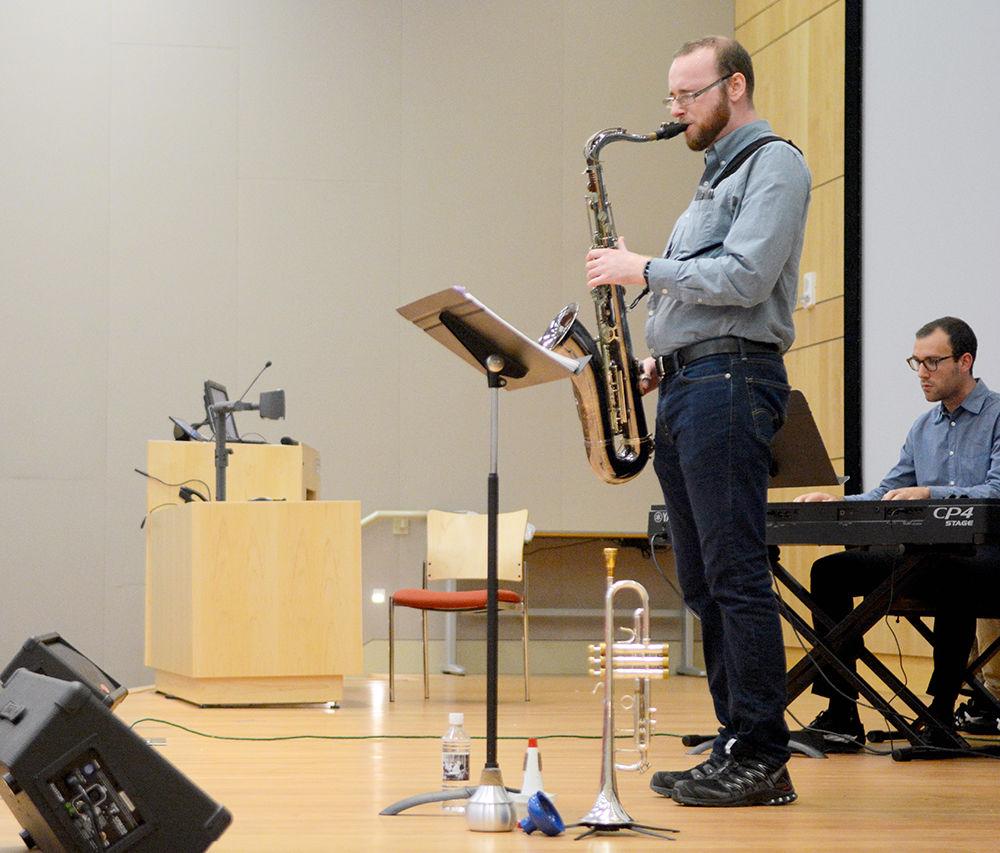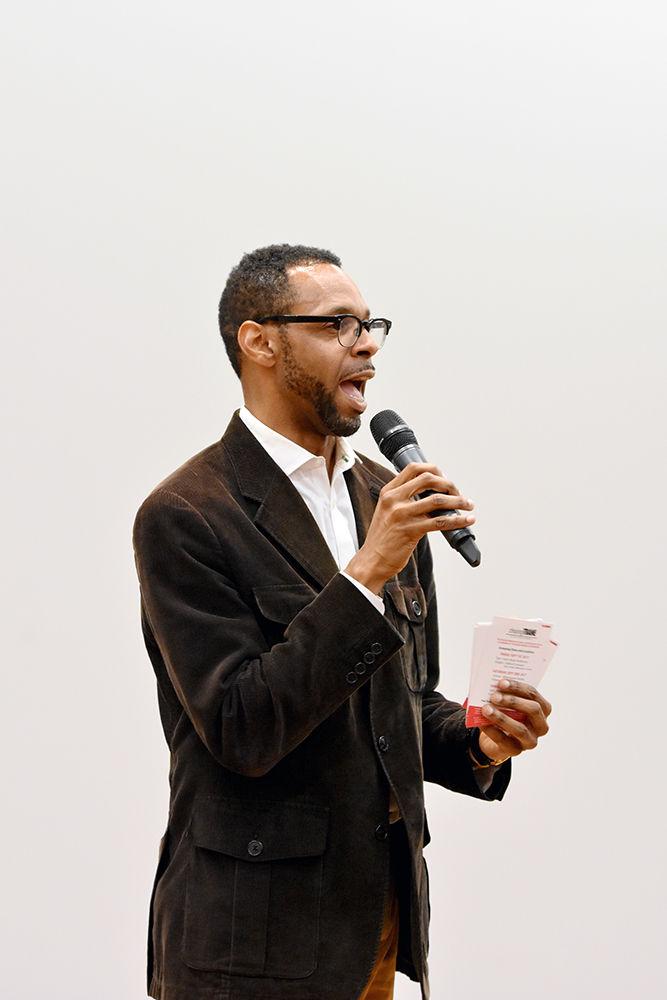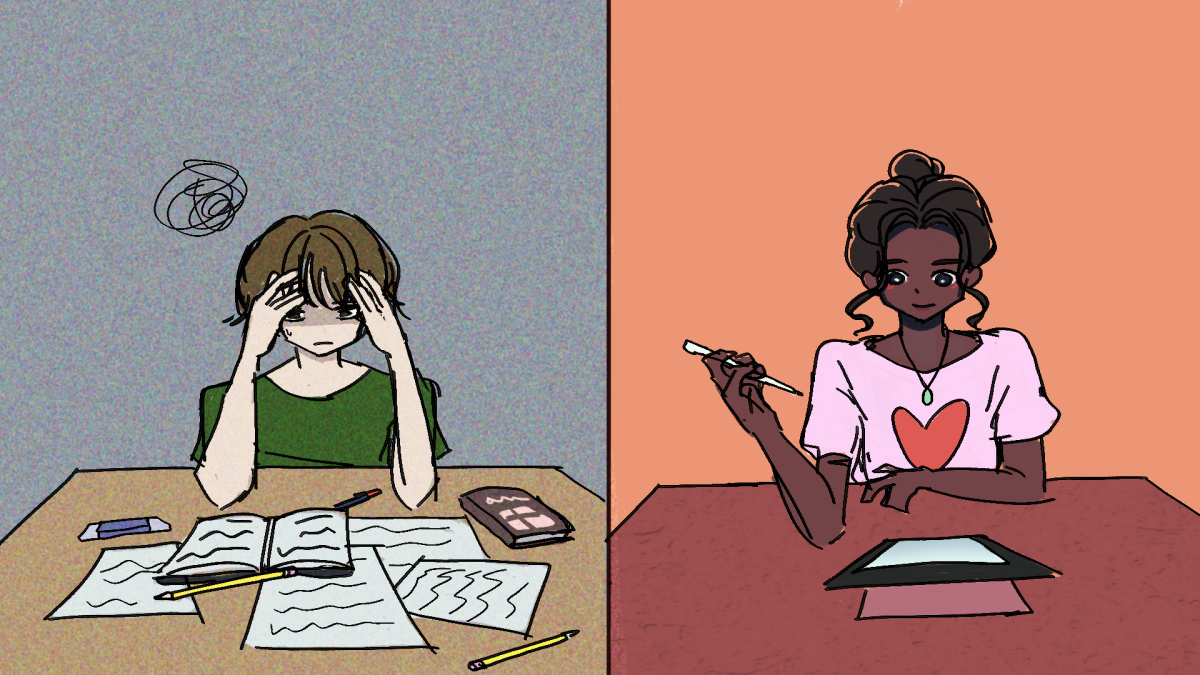From the beginning of time, music has acted as a defining point of identity for people across cultures. One genre in particular has been a key part of African-American culture. It is none other than the smooth, rich sound that is jazz. This past weekend, NC State’s African American Cultural Center paired with local nonprofit Black Jedi Zulu in showing “Chasing Trane,” an eye-opening documentary that told the story of jazz saxophonist John Coltrane. There were a total of six showings within three days, and NC State’s jazz band took the stage before the first screening at Hunt Library.
Whether one is a jazz connoisseur, or one looking to explore the genre, the film was nothing short of inspirational. The film took the audience through the Coltrane’s life from beginning to end. What truly made the documentary shine, however, was the immense amount of commentary from Coltrane’s friends, co-workers, family and supporters, further developing the idea that Coltrane has shaped the lives of many through his music. Notable names included saxophonist Sonny Rollins, 42nd president of the United States Bill Clinton, and renowned trumpeter Wynton Marsalis, among others. NC State’s African American Cultural Center’s director, Moses Greene, explains the gravity of Coltrane’s music as a whole.
“Coltrane is not known as a black jazz saxophonist,” Greene said. “He is known as a jazz saxophonist. He shaped the American experience, particularly for African-Americans, and I believe that his genius, his sound and his proficiency all lend itself to what jazz is, which was and is improvisation.”
For Greene, jazz has always been a part of his reality. Growing up in the mid-‘80s listening to jazz on the radio, Greene is no stranger to the genre. As director of the African American Cultural Center, Greene works to bring the center’s utmost goals to life.
“The vision is that the center will hub, the epicenter, for the promotion, the appreciation and the celebration of cultural history of African-Americans,” Greene said.
Perhaps the beauty of Chasing Trane is not only that it shows a pivotal face in the shaping of jazz, but it touches on real-world subjects that are still relevant today. Drug addiction and recovery, rocky interpersonal relationships, racial tensions, and violent warfare all made an appearance in the film, moving the audience to tears and certain points.
Carter Harris, a third-year doctoral student studying electrical engineering, was one of the jazz band’s members who honored Coltrane by playing his music before the film screening. Harris, whose soul flooded through his saxophone, notes the importance music has on his daily life.
“I don’t think I can stop [playing music],” Harris said. “Outside of my schooling it’s the main thing that I do. NC State doesn’t have a music major, but they do have a lot of minors and a lot of great programs. Since my time here, I didn’t ever expect the amount of love and support I get from the program, the director and the other players. It’s pretty cool.”
Captivating the audience with their rendition of classic Coltrane tunes, the jazz band proved itself as full of soul, passion and talent. Another influence on the event’s success was Black Jedi Zulu, the locally based nonprofit that works to give back to the community through outreach, music and more.
Erica Jones, president of the organization, further confirms Coltrane’s reputation as an innovator of the jazz genre, with his compositions ultimately becoming evolutionary. Jones works to utilize the cultural element of music, specifically hip-hop, jazz, blues and rap, to further connect with today’s youth.
“Music has always been a part of the African-American culture,” Jones said. “It’s always been within our roots. It keeps us going in trying times, good times and bad times. Music is in our foundation.”
Overall, the take away from “Chasing Trane” is that John Coltrane was not just playing extraordinary music — he was searching for something bigger than himself, a reason for his existence. He found it.
Moses T. Alexander Greene, the director of the African American Cultural Center at NC State University, greets guests before showing "Chasing Trane," The John Coltrane documentary. The movie was screened at James B. Hunt Library Auditorium on Friday Sept 1st, 2017 co-presented by the African American Cultural Center as well as the non-profit organization Black Jedi Zulu.








